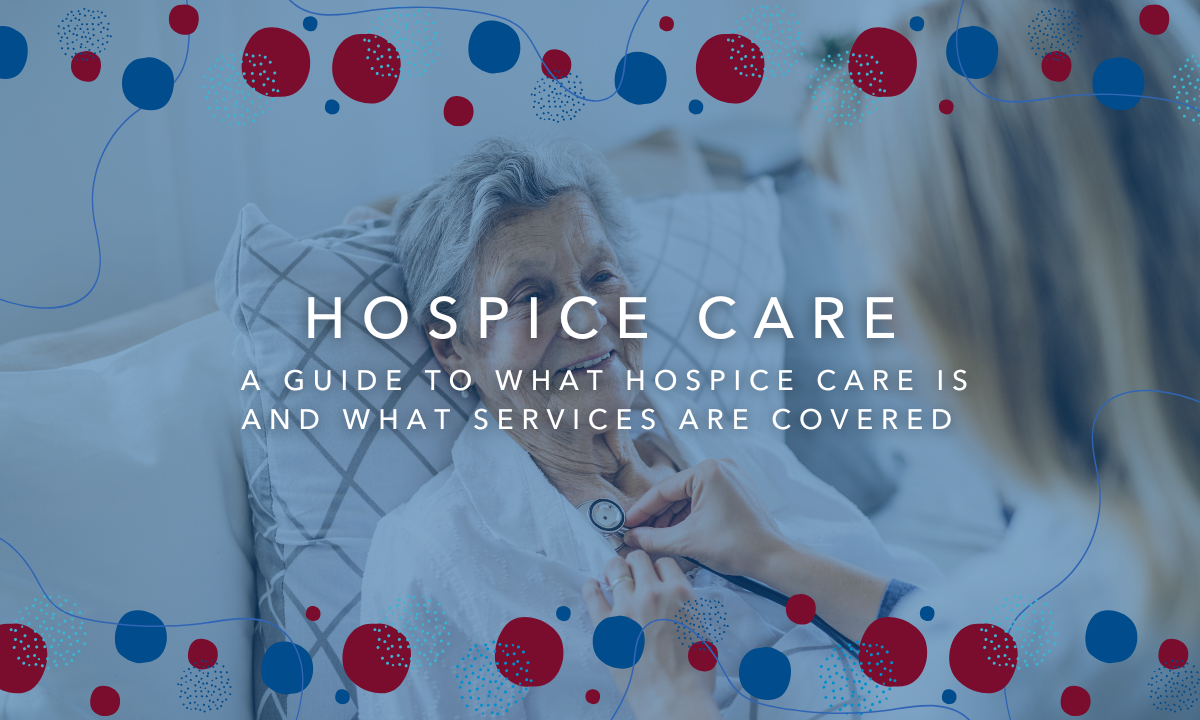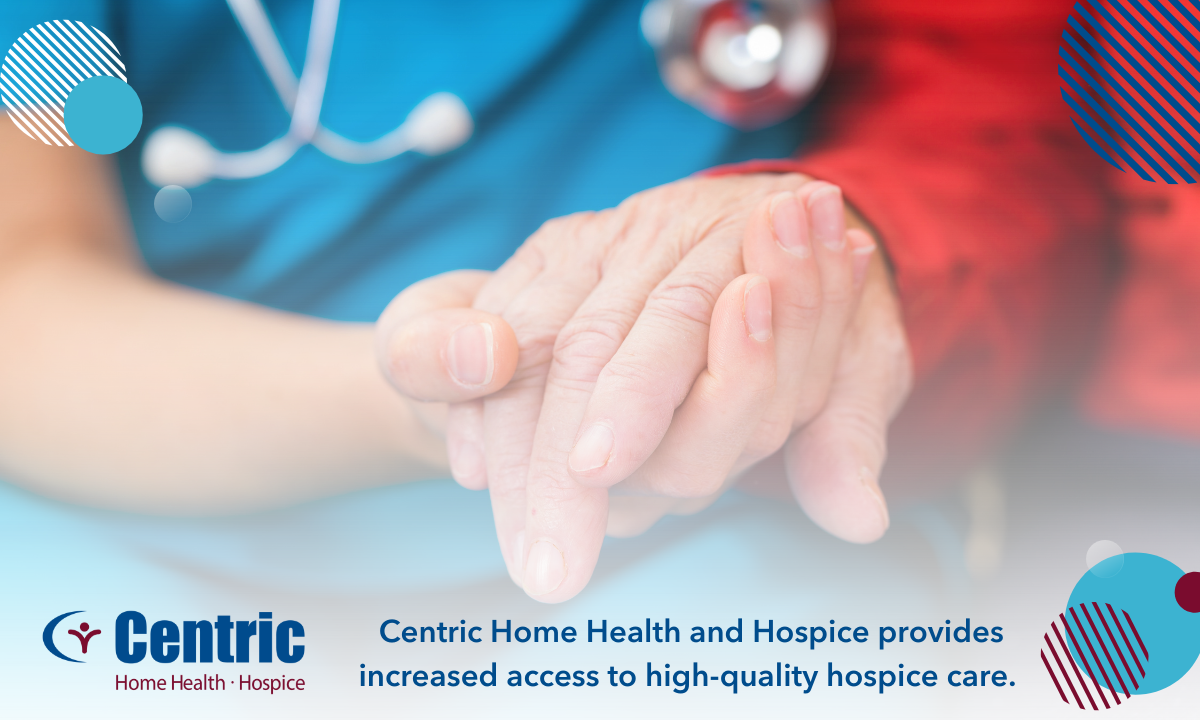Guide to Hospice Care Services and What is Covered
A Guide to What Hospice Care Is and What Services Are Covered

Hospice care is a specialized type of healthcare that focuses on providing comfort and support to individuals with terminal illnesses. Unlike traditional medical care, which aims to cure diseases, hospice care emphasizes quality of life by addressing the physical, emotional, and spiritual needs of the person and family.
What is Hospice Care?
At the heart of hospice care lies a philosophy that values comfort over treatment measures. The goal is to help patients, and their families navigate the challenges of a terminal illness with dignity and peace. This involves providing comprehensive care that addresses both physical and emotional needs to meet the diverse needs of patients and their families.
Medical Care
Pain Management - Hospice professionals work to alleviate pain and discomfort through a variety of techniques, including medication, physical therapy, and relaxation techniques.
Symptom Control - Hospice care addresses other symptoms that may arise during the terminal illness, such as nausea, shortness of breath, and fatigue.
Medication administration - Hospice nurses administer medications as prescribed by the patient's doctor, ensuring that patients receive appropriate care.
Emotional and Spiritual Support
Counseling - Hospice counselors provide emotional support to both patients and their families, helping them cope with the challenges of a terminal illness.
Chaplain Services - Chaplains offer spiritual guidance and support, addressing the spiritual needs of patients and their families.
Social Services
Assistance with Daily Living Activities - Hospice aides can help patients with tasks such as bathing, dressing, and eating.
Respite Care - Hospice care providers may offer respite care to caregivers, providing them with a break from their caregiving responsibilities.
Bereavement Support
Counseling and Support for Families After the Patient's Death - Hospice providers continue to offer support to families after the patient passes away, helping them through the grieving process.

What is Covered by Hospice Care with Centric Home Health and Hospice
The specific services covered by hospice care can vary depending on the patient's insurance coverage. However, most hospice care providers accept Medicare, Medicaid, and private insurance.
Medicare Coverage:
Medicare offers hospice benefits to individuals with terminal illnesses who have a life expectancy of six months or less. This comprehensive coverage includes a wide range of services designed to provide comfort and support during this difficult time. From medical care and pain management to emotional counseling and social services, Medicare helps ensure that patients and their families receive the care they need.
Private Insurance Coverage:
Private insurance plans can offer hospice coverage, but the specific services covered and out-of-pocket costs can vary significantly between different plans. It's important to review your insurance policy carefully to understand your coverage options and any potential expenses.
Medicaid Coverage:
Medicaid can provide hospice coverage for individuals who meet specific income and other eligibility requirements. In general, Medicaid offers hospice services similar to those covered by Medicare, providing financial assistance to those in need.
Veteran's Affairs (VA) Benefits:
For veterans facing a terminal illness, the U.S. Department of Veterans Affairs offers hospice care programs tailored to meet their unique needs. These programs provide comprehensive care, including medical services, emotional support, and social services, ensuring that veterans and their families receive the compassionate care they deserve.
Benefits of Hospice Care with Centric Home Health and Hospice
Choosing hospice care can be a transformative experience for both patients and their families. By providing comprehensive support and compassionate care, hospice helps individuals navigate the challenges of a terminal illness with dignity and peace. From improved quality of life to reduced stress for caregivers, the benefits of hospice care are profound and far-reaching.
Improved Quality of Life
When patients choose hospice care, they can experience a significant improvement in their quality of life during their final days. Hospice professionals are dedicated to providing comfort and support, addressing physical pain, emotional distress, and spiritual needs. This allows patients to focus on spending meaningful time with loved ones and enjoying life's simple pleasures.
Reduced Stress and Burden on Caregivers
Caregiving for a loved one with a terminal illness can be physically and emotionally exhausting. Hospice care provides invaluable support to caregivers, offering respite care, counseling, and other resources. This allows caregivers to take a break from their demanding responsibilities and recharge their energy.
Access to Specialized Care
Hospice care providers have extensive experience and expertise in managing complex medical conditions that often accompany terminal illnesses. Their specialized knowledge and skills enable them to provide the highest level of care, ensuring that patients receive the best possible treatment and symptom management.
Spiritual and Emotional Support
The emotional and spiritual challenges that arise during a terminal illness can be overwhelming. Hospice care offers a compassionate and supportive environment where patients and their families can receive guidance, counseling, and spiritual care. This support can help individuals navigate difficult emotions, find meaning, and foster a sense of peace and acceptance.

Things to Consider When Choosing a Hospice Care Provider Like Centric Home Health and Hospice
Choosing a hospice care provider is a critical decision that can significantly impact the quality of life for both patients and their families. When making this important choice, it's essential to consider several factors, including the provider's reputation, services offered, geographic location, and philosophy of care. By carefully evaluating these factors, you can select a hospice care provider that best meets your unique needs and provides the compassionate support you deserve.
Reputation and Experience
When choosing a hospice care provider, it's essential to research their reputation and experience. Look for a provider with a proven track record of providing high-quality hospice care. Consider reading testimonials from previous patients and their families to gain insights into their experiences.
Services Offered
Different hospice care providers may offer varying levels of services. It's important to choose a provider that offers the specific services you or your loved one need. Consider factors such as the availability of medical care, emotional support, social services, and bereavement counseling.
Geographic Location
Convenience is a key factor when selecting a hospice care provider. Choose a provider that is located within a reasonable distance from your home. This will make it easier for you and your family to access the necessary services and support.
Philosophy and Approach to Care
Every hospice care provider has its own unique philosophy and approach to care. It's important to find a provider whose values and beliefs align with your own. Consider factors such as the provider's emphasis on comfort, pain management, and spiritual care.
Hospice Care with Centric Home Health and Hospice
Hospice care is a compassionate and supportive approach to healthcare that focuses on providing comfort and quality of life for individuals with terminal illnesses. By understanding the services offered, coverage options, and benefits of hospice care, you can make informed decisions about your healthcare needs or the needs of a loved one.
If you or a loved one is facing a terminal illness, Centric Home Health and Hospice is here to provide compassionate and supportive care. Contact us today at 1-855-942-3687 to learn more about our hospice services.
Share This On Your Favorite App
